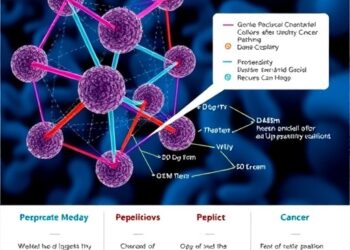In a pooled analysis of three clinical trials, acupuncture significantly reduced hot flashes and other hormonal side effects of endocrine therapy taken by women with breast cancer. The analysis of data from the United States, China, and South Korea is published by Wiley online in CANCER, a peer-reviewed journal of the American Cancer Society.
In a pooled analysis of three clinical trials, acupuncture significantly reduced hot flashes and other hormonal side effects of endocrine therapy taken by women with breast cancer. The analysis of data from the United States, China, and South Korea is published by Wiley online in CANCER, a peer-reviewed journal of the American Cancer Society.
Endocrine therapy, which blocks hormone signaling that drives some forms of breast cancer, can be a life-saving treatment, but up to 80% of patients who take it experience hot flashes—a sudden, temporary sensation of body warmth, flushing, and sweating—and other side effects. Many patients who experience these symptoms discontinue endocrine therapy, which can put them at an elevated risk of cancer progression and death.
Other medications can reduce hot flashes, but they come with their own unpleasant side effects. Studies have evaluated the impact of acupuncture on hot flashes in women with early breast cancer undergoing endocrine therapy, with mixed results.
To provide more information about acupuncture’s potential, investigators conducted a coordinated, multinational project consisting of three independent randomized controlled trials in the United States, China, and South Korea that used the same eligibility criteria, acupuncture protocol, and study measures.
A total of 158 women with stage 0–III breast cancer were randomized to immediate acupuncture (IA) or delayed acupuncture control (DAC). IA participants received acupuncture twice a week for 10 weeks and were followed for an additional 10 weeks without acupuncture. DAC participants received usual care for 10 weeks, then crossed over to acupuncture with a reduced intensity (once per week) for 10 weeks. Standardized clinical questionnaires were used to assess hormonal symptoms—including hot flashes, night sweats, vaginal dryness, and joint pain—as well as quality of life related to physical well-being, functional well-being, emotional well-being, and social/family well-being.
At week 10 from the start of the trials, IA participants’ questionnaire scores reflected significant lessening of symptoms compared with DAC participants. Responses indicated that 64% of people in the IA group reported improvements in the number and severity of their hot flashes, compared with 18% in the DAC group. IA participants also reported greater improvements in quality of life compared with DAC participants.
Between week 10 and week 20, scores did not change significantly for IA participants. DAC participants who received weekly acupuncture during this time had significant improvements in symptom scores relative to week 10. There were no acupuncture-related side effects reported by any of the participants.
“By managing side effects, our approach makes it easier for patients to continue their prescribed medication, which has the potential to reduce the risk of cancer recurrence and improve long-term outcomes for breast cancer survivors,” said lead author Weidong Lu, MB, MPH, PhD, of the Dana-Farber Cancer Institute. “In practice, patients interested in using acupuncture for this purpose might begin with a short trial period to assess their response to the treatment, particularly in terms of reduction in hot flashes and other symptoms. If the trial period yields positive results, patients may then engage in a long-term program, receiving regular acupuncture sessions throughout the duration of their anti-hormonal medication regimen.”
Additional information
NOTE: The information contained in this release is protected by copyright. Please include journal attribution in all coverage. A free abstract of this article will be available via the CANCER Newsroom upon online publication. For more information or to obtain a PDF of any study, please contact: Sara Henning-Stout, newsroom@wiley.com
Full Citation:
“Acupuncture for Hot Flashes in Hormone Receptor-Positive Breast Cancer, A Pooled Analysis of Individual Patient Data from Parallel Randomized Trials.” Weidong Lu, Anita Giobbie-Hurder, Anna Tanasijevic, Sylvia Baedorf Kassis, Sung Hwan Park, Young Ju Jeong, Im Hee Shin, Chang Yao, Hyun Jung Jung, Zhiyuan Zhu, Chao Bao, Ting Bao, EunMee Yang, Barbara E. Bierer, and Jennifer A. Ligibel. CANCER; Published Online: June 24, 2024 (DOI: 10.1002/cncr.35374).
Author Contact: John W. Noble, Media Relations Manager at the Dana-Farber Cancer Institute, at johnw_noble@dfci.harvard.edu or +1 703-407-9416.
About the Journal
CANCER is a peer-reviewed publication of the American Cancer Society integrating scientific information from worldwide sources for all oncologic specialties. The objective of CANCER is to provide an interdisciplinary forum for the exchange of information among oncologic disciplines concerned with the etiology, course, and treatment of human cancer. CANCER is published on behalf of the American Cancer Society by Wiley and can be accessed online. Follow CANCER on Twitter @JournalCancer and Instagram @ACSJournalCancer, and stay up to date with the American Cancer Society Journals on LinkedIn.
About Wiley
Wiley is a knowledge company and a global leader in research, publishing, and knowledge solutions. Dedicated to the creation and application of knowledge, Wiley serves the world’s researchers, learners, innovators, and leaders, helping them achieve their goals and solve the world’s most important challenges. For more than two centuries, Wiley has been delivering on its timeless mission to unlock human potential. Visit us at Wiley.com. Follow us on Facebook, Twitter, LinkedIn and Instagram.
Journal
Cancer
Article Title
Acupuncture for Hot Flashes in Hormone Receptor-Positive Breast Cancer, A Pooled Analysis of Individual Patient Data from Parallel Randomized Trials
Article Publication Date
24-Jun-2024




